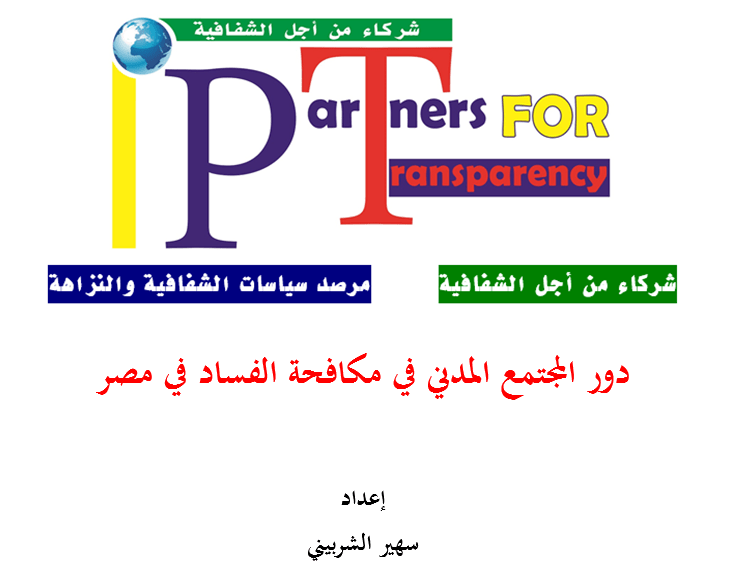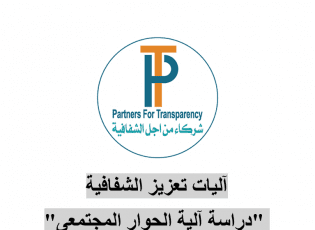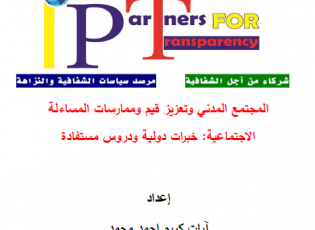In the New Partners Policy Paper for Transparency
The role of civil society in fighting corruption
Partners for Transparency Foundation issued a new policy paper under the title “The Role of Civil Society in Fighting Corruption”. This comes within the framework of the Foundation's Transparency and Integrity Policies Observatory. The paper stems from the importance of the role of civil society organizations in society, describing corruption as one of the most destructive phenomena of resources. States and their wealth, it has become necessary for civil society organizations to share responsibility for combating it with the state.
The paper indicated that some civil society organizations in Egypt played an effective role in the United Nations Convention against Corruption, and the paper also indicated that Egypt was one of the first countries to sign the convention, but in spite of that the implementation of the agreement on the ground did not achieve sufficiently The interest of successive Egyptian governments is only some official and institutional measures, the size of which has not been commensurate with the actual efforts exerted on the ground. Among these measures are the establishment of the National Anti-Corruption Committee, the National Anti-Corruption Strategy 2014-2018, and the amendments to the 2014 Constitution, which require that the regulatory bodies have legal personality, technical, financial and administrative independence, and are committed to coordinating with each other in order to combat corruption.
Within the framework of civil society organizations ’endeavor to work in combating corruption according to available resources, some organizations organize trainings and workshops at the level of the governorates of Egypt in order to develop societal awareness of the danger of corruption and enhance the values of transparency and integrity, in addition to carrying out monitoring and documentation of corruption incidents and producing quarterly and annual reports. And the preparation of studies and reports that monitor the causes of corruption and discuss ways of developing legislation governing the work of civil society organizations in this context, in addition to litigation and advocacy for victims of corruption and resorting to the judiciary abroad in order to freeze the assets of those found to be entitled to charges of corruption in order to recover the stolen money from abroad. Despite these efforts, the effectiveness of the role of civil society in combating corruption is still in its infancy, and these organizations still need more governmental and community support in order to perform their role optimally.
The paper presented a set of recommendations to enhance the role of civil society organizations in combating corruption, the most prominent of which is in: The government provides material and technical support to civil society organizations in order to be able to continue their activities by spreading more widely in the governorates of Egypt and to continue issuing reports monitoring incidents of corruption, and to encourage non-activated publicized NGOs to activate their role and provide them with the necessary capabilities for that.
The paper also recommended developing the new law for civil organizations and making amendments that would grant greater powers to civil society organizations in order to be able to optimally perform their role in fighting corruption, and to facilitate the granting of licenses to new organizations so that those with energies could participate in the fight against corruption rather than wasting those Energies with more complexities and conditions, and finally, transparency and ease of granting information that enables these organizations to detect corruption and corruptors.

The role of civil society in fighting corruption
The role of civil society in fighting corruption in EgyptShort link: https://pfort.org/en/?p=2588











